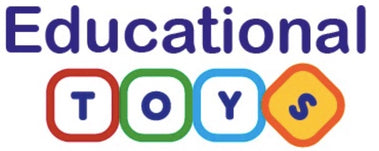
How to Choose The Best Educational Toy for Your Child
How to Choose The Best Educational Toy for Your Child
When you want to buy the best educational toys for your child for the holidays or a birthday, it is essential to understand the tips recommended by experts. Educational toys can teach your child numerous mental or physical skills, and by having these toys in your home you are improving your child's development. Here is how you can select a great educational toy for your child.
Educational Toy Tip 1: Age of Your Child
The companies that manufacture educational toys will list the recommended age range for the item on its box. It is important to avoid buying a toy for a toddler that is designed for an older child, but if you buy a toy for a young toddler, then she may still benefit from it at an older age. One example of this is having blocks for a toddler so that she can develop her small motor skills of grasping items in her fingers to stack the items in a tower. However, if you choose blocks that have letters of the alphabet, then you can continue to use the blocks for a kindergarten-aged child who is learning her letters.
Educational Toy Tip 2: Is the Toy Safe?
If you buy educational toys from well-known manufacturers, then the item is likely tested to meet specific safety standards. Some of the safety regulations include using nontoxic materials to prevent skin contamination or poisoning incidents. An additional concern is not having a toy that is a choking hazard because it has small parts that can enter a child's throat. Infant and toddler education toys shouldn't have fabrics that can degrade from chewing that can lead to choking from fiberfill. You should avoid buying any toys that having flying projectiles or sharp components. It is important to follow the age recommendations labeled on the box and instructions of the toy to avoid choking or swallowing hazards.
Educational Toy Tip 3: Is It a Versatile Toy?
You will want to have educational toys that are versatile so that a child will play with the items numerous times. If a child is bored by a toy, then the item will sit on a shelf after being played with only one time. Think carefully about how your child can use a toy in multiple ways rather than only playing with it for a few days. Toys such as plastic beads or tiny blocks that snap apart into different shapes are usable for many years, making its purchase worthwhile.
Educational Toy Tip 4: Can a Child Role-play With the Toy?
Pretending is one of the best ways to stimulate your child's mind, and role-playing toys promote a variety of thinking skills. Toys such as dolls, plastic farm animals and miniature buildings promote creativity and imagination. Additional role-playing toys include pretend physician's bags that contain plastic medical instruments or play kitchens that have dishes and pans. With these types of toys, children explore new careers as they pretend to be adults.
Educational Toy Tip 5: Will Your Child Like the Toy?
Your child may have particular interests, especially after they begin school. If your child displays musical abilities, then choosing a toy that creates or plays music is important. Toys that jingle or make music can help your child develop his sense of hearing. You can find crib mobiles and balls that create music, but older children will like having miniature instruments that they can play to make music.
Educational Toy Tip 6: Understand Your Child's Development
Each child goes through developmental stages at a different pace. If you can recognize the signs of different developmental stages, then you can stimulate your child's brain. Alternatively, you might have a child with special needs who requires additional stimulation to development his motor or social skills. If you are looking for an educational toy that will help your child's development, then read the labels on packages or complete some online research to find items that are designed for increasing problem-solving, communication or fine-motor skills.
Educational Toy Tip 7: The Cost of an Educational Toy
Unless you are wealthy, you will need to consider the cost of an educational toy. If you want to have affordable educational toys, then shop at stores that have sales or coupons. Don't buy a toy until you comparison shop to determine if it offers value for your children. It is acceptable to buy used toys at charity shops or garage sales, but make sure that it meets proper safety standards. Remember that having only a few high-quality toys is better than filling a toy box with useless items that offer no benefits for your child.
Brittany Waddell is a contributing writer and media specialist for The Stem Store. She often produces content for a variety of educational blogs.

Leave a comment